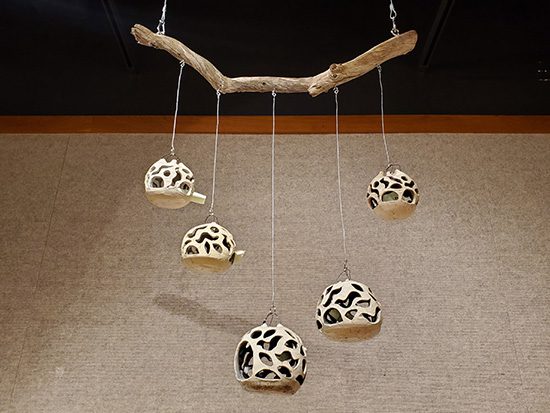

Senator Kaiali‘i Kahele, chair of the Senate Committee on Higher Education, met with WCC students and faculty on campus on Oct. 30. The visit was part of the committee’s statewide higher education tour of University of Hawai’i (UH) campuses.
Fifteen faculty members and eight students attended the sessions held in the library. Only a few questions were asked by students, most relating to class scheduling. The senator used the lull in questions to address his concerns about the increase of tuition costs.
“Your tuition is going to go up, and it’s going to go up again. It was approved by the board for 2020,” Kahele said. “Tuition at the UH system is out of control.”
In 2016, the UH Board of Regents (BOR) approved a tuition increase for the 10-campus system over a three-year period. The BOR has exclusive jurisdiction over the internal structure, management and operation of the university. To serve on the board, members are first nominated by the Regents Candidate Advisory Council and then appointed by the governor and confirmed by the legislature. From 1907 to 1995, tuition at the UH system was set by the state legislature, and all tuition paid in those 88 years went straight to the
state’s general fund–not to the university. But in 1995, the legislature passed a bill that gave tuition-setting power to the Board of Regents and allowed 100 percent of tuition to be kept by the university for “operating revenue.”
“It (tuition) went up 650 percent (since 1995),” Kahele said. “The average UH graduate ends up with at least $25,000 in student debt and that’s just for a general degree.”
Both Senator Kahele and Representative Angus McKelvey (10-West Maui, Mā‘alaea, North Kihei), who was also present, expressed concern over the increased power of the Board of Regents.
“UH has been granted extraordinary power to move money around without legislative approval,” McKelvey said. “It’s a pressing issue that we need to revisit next session because when we say we want to fund items X, Y and Z that are coming from conversations like this with you, the students, the faculty, we expect that items X, Y and Z will be funded, not A, B and C.”
When Ka ‘Ohana asked the BOR to comment about the tuition increase, Dan Meisenzahl, UH’s media spokesperson, responded.
“UH leadership proposed the tuition increases taking into account the need for additional funds while trying to keep tuition affordable,” Meisenzahl said. “Much of it
depends on how much state
support is available, which has dropped significantly since the 2008 recession here in Hawai’i and across the nation.”
Over the last six years, the UH system has seen a steady decline in enrollment.
“I wanted the Board of Regents to look inside of themselves, to look at other streams of revenue besides raising tuition, because that’s all they do,” Kahele said.
“When there’s less revenue from a decrease in enrollment, they raise tuition. We need to look at how we can get other creative sources of creating revenue rather than raising tuition or relying on the state’s general fund, which is almost at half a billion dollars now, about the highest it’s ever been. I do not believe the university focuses its effort around the student.”
The agenda logs for the Board of Regents meetings, which are public, include a list of executive managerial positions at the university and their monthly salaries. The lowest wage found on the logs is UH Mānoa’s director of student affairs Mitchell Leslie at $6,250 a month. One of the highest is Donald Straney, vice president for academic planning and policy, at $20,834 a month or $250,000 a year.
“It will blow your mind what this university pays at the expense, in my opinion, of the students,” Kahele said.
It is difficult to find any executive managerial position at the university that pays less than six figures. According to the logs, an assistant librarian at UH Mānoa currently makes $120,000 a year.
“There’s a long standing joke in the legislature: Go find a job at university. University is the emerald palace. Go get your six figure job, stay there for three years, and then retire,” Kahele said. “I have a fundamental problem with that. Students bear the brunt of it. Students’ tuition increases. There’s a decline in services. Classes aren’t offered on time. It takes a year longer to graduate. The university system has not changed, and I have a problem with that. That’s what we’re trying to rein in.”
WCC student Kala‘e Lopes found the discussion eye-opening.
“We can get so caught up with school that we tend to look past the politics behind it,” Lopes said. “The Senator’s visit showed us all that there are people in it for the money, and people in it to make a difference. So it’s our job as community members to educate ourselves and stay involved so that we don’t end up paying for it, literally.”
Last session, Kahele was one of four legislators to introduce SB 1161 SD1, a bill that would require two members of the University of Hawai’i Board of Regents to be faculty members, prohibit the board from increasing tuition fees until an unspecified date, establish a cap on the University of Hawai‘i’s general fund appropriation for the next five fiscal years, and require the university to report to the legislature regarding tuition increases and the university’s repair and maintenance costs.
Senator Kahele was also integral in establishing the University of Hawai’i Promise Program. The program provides scholarships to students who do not receive enough funding from federal Pell grants to cover all educational costs. When he asked the students to indicate if they had heard of the program, the room fell silent.
The senator expressed his disappointment over the lack of awareness about the program.
“That is a failure of the administration at Windward,” Kahele said.
To apply and receive more information on the Hawai’i Promise Program, visit WCC’s financial aid office in Hale Alaka‘i 107.
by Eliana Christianson, Ka ‘Ohana Editor in Chief





